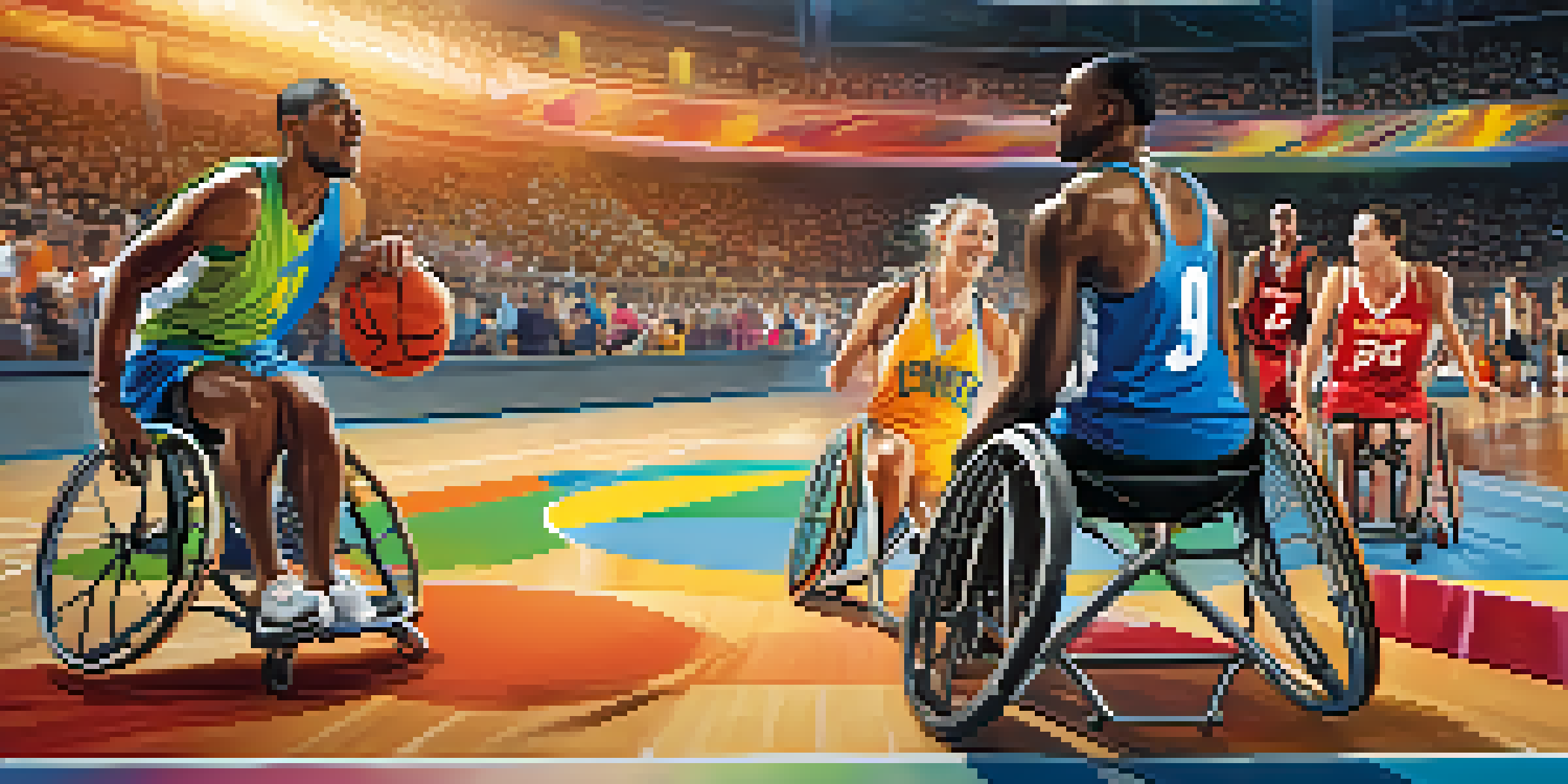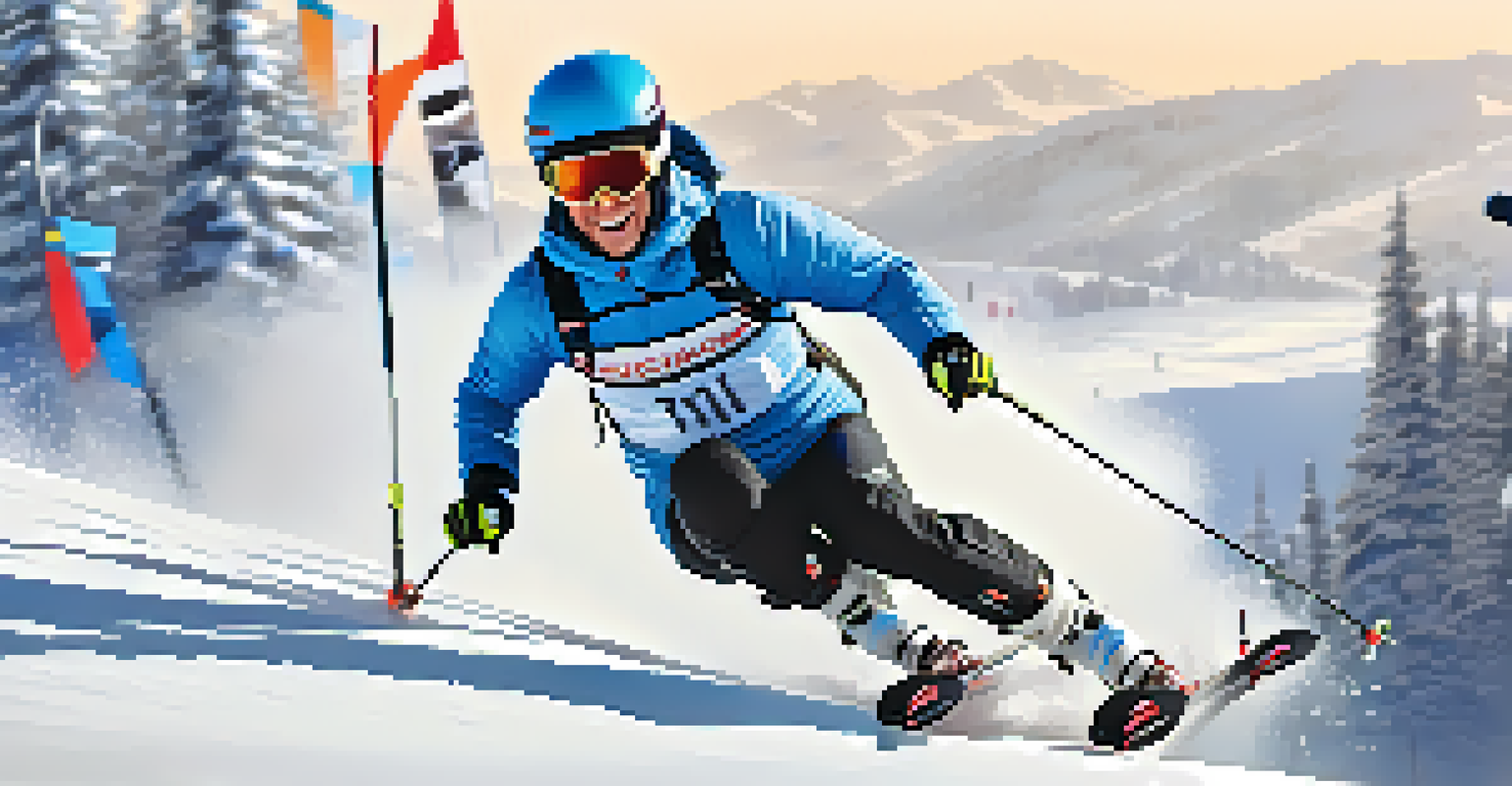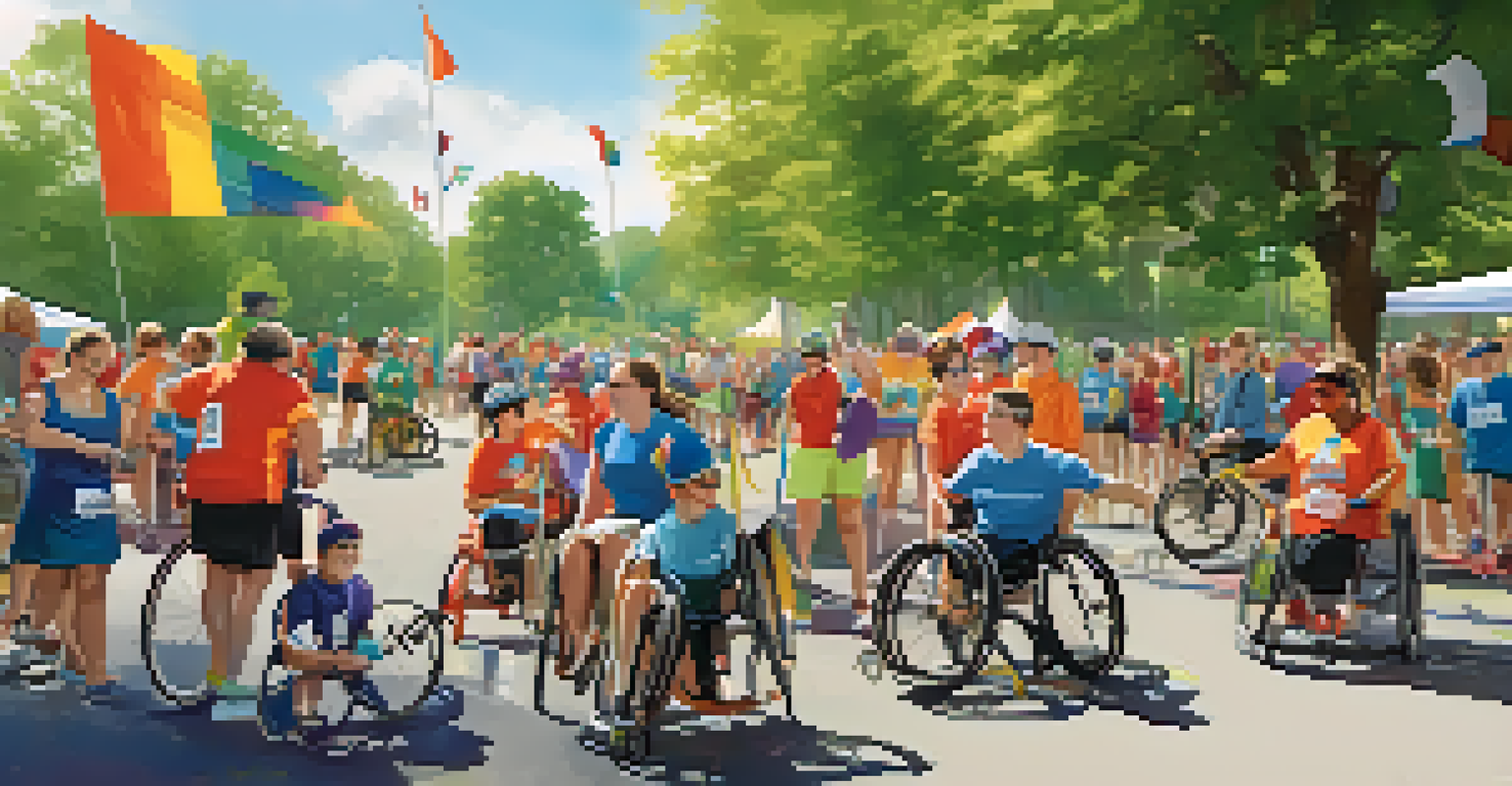Understanding Adaptive Sports Programs and Their Importance

What Are Adaptive Sports Programs?
Adaptive sports programs are specially designed activities that enable individuals with disabilities to participate in sports. These programs adapt rules, equipment, and environments to ensure inclusivity. They can range from wheelchair basketball to adaptive skiing, making sports accessible for everyone.
The only disability in life is a bad attitude.
The primary goal of these programs is to promote physical activity, social interaction, and overall well-being among participants. By modifying traditional sports, adaptive programs help break down barriers, allowing people with diverse abilities to engage in healthy competition. This empowerment can lead to increased confidence and improved quality of life.
Ultimately, adaptive sports programs serve as a bridge, connecting individuals with disabilities to their communities. They foster a sense of belonging and encourage teamwork, often creating lifelong friendships. This inclusive approach not only benefits participants but also enriches the entire community.
The Benefits of Participating in Adaptive Sports
Participating in adaptive sports offers numerous physical health benefits, such as improved strength, flexibility, and cardiovascular fitness. Regular exercise is essential for everyone, but it can be particularly transformative for individuals with disabilities. These programs help participants stay active and maintain a healthy lifestyle.

Beyond physical health, adaptive sports also provide significant mental health advantages. Engaging in sports can reduce feelings of isolation and depression, fostering a sense of accomplishment and self-worth. The camaraderie developed within these programs creates a supportive environment where athletes can thrive.
Adaptive Sports Foster Inclusivity
Adaptive sports programs enable individuals with disabilities to engage in sports, promoting inclusivity and community connection.
Moreover, adaptive sports teach valuable life skills such as teamwork, discipline, and resilience. Participants learn to set goals and overcome challenges, which can translate to other aspects of their lives. This holistic development is crucial for personal growth and empowerment.
The Role of Coaches in Adaptive Sports
Coaches play a vital role in the success of adaptive sports programs. They are responsible for creating an inclusive environment where all athletes can feel supported and valued. A good coach understands the unique needs of each participant and tailors their approach accordingly.
Inclusion is not a matter of political correctness. It is the key to growth.
Training in adaptive coaching techniques is essential for effectively guiding athletes with disabilities. Coaches must be knowledgeable about various disabilities and the specific adaptations required for different sports. This expertise ensures that all participants can safely enjoy the benefits of sports.
Additionally, coaches serve as mentors and motivators, inspiring athletes to push their limits. They help cultivate a growth mindset, encouraging participants to embrace challenges and celebrate their achievements. This relationship between coach and athlete is crucial for fostering confidence and a love for sport.
Community Support and Adaptive Sports Programs
Community support is essential for the sustainability of adaptive sports programs. Local organizations, businesses, and volunteers often contribute resources, equipment, and funding to help these initiatives thrive. This support fosters a culture of inclusion and encourages more individuals to participate.
When communities rally around adaptive sports, they create a positive ripple effect. Families and friends of participants often become engaged, helping to spread awareness and promote inclusivity. This involvement can lead to greater acceptance and understanding of the challenges faced by individuals with disabilities.
Numerous Benefits for Participants
Engaging in adaptive sports enhances physical health, mental well-being, and valuable life skills for participants.
Moreover, community events centered around adaptive sports can serve as powerful platforms for advocacy. By showcasing the talents of athletes with disabilities, these events challenge stereotypes and encourage a more inclusive mindset in society. It’s a win-win for everyone involved.
Challenges Faced by Adaptive Sports Programs
Despite their many benefits, adaptive sports programs face several challenges. Funding is often a significant hurdle, as many programs rely on donations and grants to operate. This financial instability can limit the availability of resources and opportunities for participants.
Additionally, there can be a lack of awareness about adaptive sports within communities. Many individuals may not know about the options available to them or may underestimate the potential benefits of participation. This knowledge gap can hinder growth and limit the reach of these valuable programs.
Furthermore, coaches and facilitators may require specialized training to effectively support athletes with diverse needs. Without proper training, programs may struggle to provide the necessary adaptations and support for participants. Addressing these challenges is crucial for the continued success of adaptive sports initiatives.
How to Get Involved in Adaptive Sports
Getting involved in adaptive sports is easier than you might think! Many local organizations offer programs designed for various abilities and interests. A quick online search or a visit to a community center can help you discover opportunities in your area.
For individuals with disabilities, participating in adaptive sports can be a life-changing experience. It’s a chance to try something new, meet new people, and develop skills in a supportive environment. Many programs offer introductory sessions, making it accessible for newcomers to dip their toes in.
Community Support is Essential
Strong community backing is crucial for the sustainability of adaptive sports programs, fostering a culture of inclusion and awareness.
If you're not an athlete but still want to contribute, consider volunteering or becoming a coach. Your support can make a significant difference in the lives of participants. Engaging with adaptive sports programs can foster a sense of community and inclusivity that benefits everyone.
The Future of Adaptive Sports Programs
The future of adaptive sports programs looks promising, with increasing recognition of their importance. As more communities embrace inclusivity, we can expect to see a growth in available programs and resources. This shift will help break down barriers and enable more individuals with disabilities to participate in sports.
Technological advancements are also shaping the landscape of adaptive sports. Innovations in equipment, such as specialized wheelchairs and adaptive devices, are making it easier for athletes to compete at higher levels. These developments not only enhance performance but also open doors to new sports and activities.

Furthermore, as awareness of adaptive sports continues to rise, we can anticipate greater advocacy for funding and support. This momentum will ensure that these programs can thrive and reach their full potential, creating a brighter and more inclusive future for athletes of all abilities.